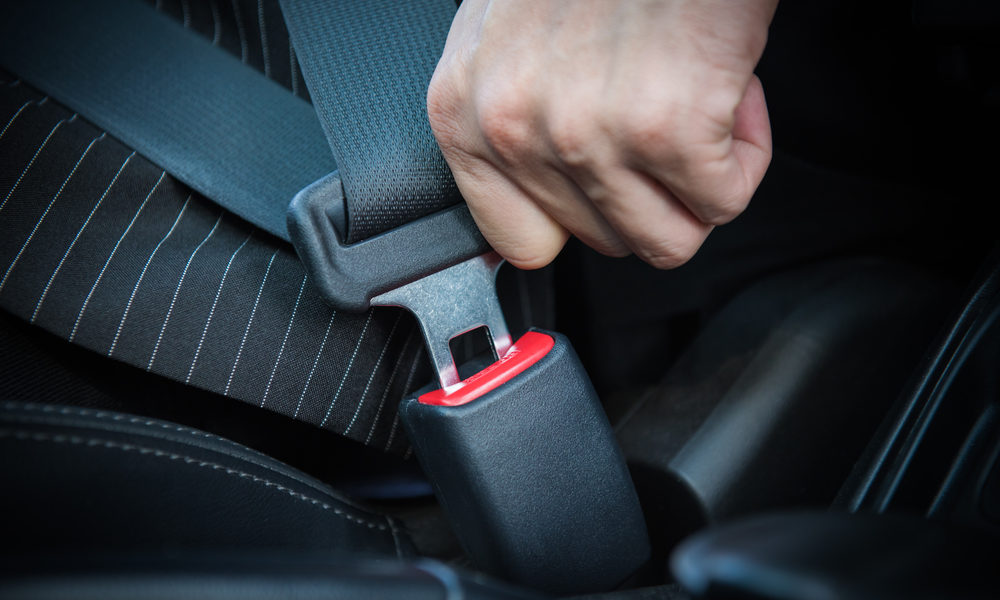◆ SF 11, allows for primary enforcement of seat belt law.
By Stephen Dow
The Sheridan Press
Via- Wyoming News Exchange
SHERIDAN — From 2018 to 2019, seat belt usage in the United States went up by 1.1%. But in Wyoming, usage dropped by eight percentage points.
Only New Hampshire (70.7%) and South Dakota (75.2%) had lower percentages of seat belt usage than Wyoming’s 78.3%, according to the National Highway Traffic Safety Administration. This is especially concerning as seat belts have repeatedly saved lives in traffic accidents, according to Sheridan Police Department Lt.Tom Ringley.
In 2017 alone, seat belts saved an estimated 14,955 lives in the United States and could have saved an additional 2,549 if they had been used, according to the National Highway Traffic Safety Administration.
“The police department’s stance is that seat belts have proven to be the most effective tool in preventing death and bodily harm in motor vehicle accidents,” Ringley said. “We strongly encourage people to wear seat belts and absolutely support making a seat belt violation a primary reason for a traffic stop.”
Senate File 0011, which is working its way through the Wyoming Legislature this session, would allow for primary enforcement of seat belt laws in the state. What this means practically, according to Ringley, is law enforcement would be able to pull a vehicle over solely for a seat belt violation. Currently, the state has secondary enforcement, which means officers can cite a driver for seat belt violations but only if they are pulled over for other infractions such as speeding or driving with a busted tail light.
The net effect of this, according to Wyoming Highway Patrol Administrator Colonel Kebin Haller, is a lot of life-endangering infractions are not being addressed.
“Whenever we talk about secondary enforcement, oftentimes individuals will, we believe, buckle up once the lights are turned on and they know they’re being stopped,” Haller told the Wyoming Legislature’s Joint Transportation, Highways and Military Affairs Committee in September. “If this is noted, then of course it will be cited, but I believe right now it is very under-enforced.”
Currently, 34 states have primary enforcement seat belt laws while another 15 have secondary laws, according to the National Highway Traffic Safety Administration. New Hampshire effectively has no adult seat belt law, and it is legal for those older than age 18 to ride without a belt in that state.
States with primary laws had a higher rate of seat belt usage in 2019 (92%) than states without them (86.2%), according to the NHTSA. From 2018 to 2019, seat belt usage went up in primary law states (by 1.4%) while it went down (by 0.2%) in states with secondary — or no — enforcement.
In addition to switching to primary enforcement, the draft bill also increases the fees associated with violating the seat belt law. Both drivers and passengers will now be fined $100, according to the bill draft. Currently, drivers are fined $25 and passengers are fined $10.
The law would also add a $200 penalty for every child younger than 12 who is not buckled up.
Ringley noted that, although the police department preferred public education to citations, an increased fine for seat belt infractions would likely have a positive impact on seat belt usage.
“I think an increase in bond amount deters anybody from violating any law,” Ringley said. “And of course, the more money it is, the more of a deterrent effect it will have.”
Ringley said that, if the bill was approved, the Sheridan Police Department would work to educate the community about the new requirements.
“Our policy, when a new law goes into effect, is not to immediately start writing citations,” Ringley said. “If this was approved by the Legislature, we would start a strong public education campaign about what the law is and why it’s important. We would not jump into issuing citations right away.”
Senate File 0011 is just one of the highway safety bills being considered this legislative session. House Bill 0023 amends current state statute regarding child safety seats to require every child younger than 2 to be placed in a rear-facing seat or restraint system.
This bill works to curb an ongoing issue regarding young children who are not restrained properly, Haller said.
“Specific to the child restraints, on average, there are more than 3,000 citations a year where our children are not being restrained, and when I say not restrained, I’m talking not at all or the device is not being correctly used, which means it’s still not safe,” Haller said.
Senate File 0011 also increases fees for violation of the safety seat requirements. Currently, violators are fined $50 for the first offense and $100 for subsequent offenses. The fees would increase to $100 for the first offense and $200 for subsequent offenses.






